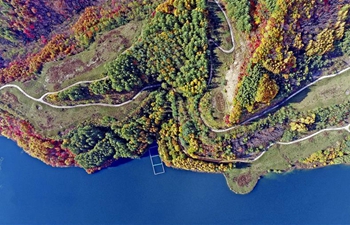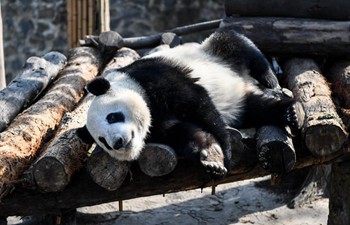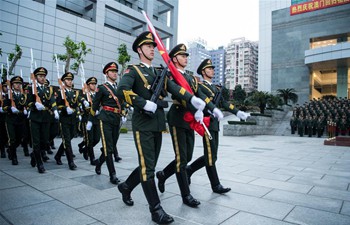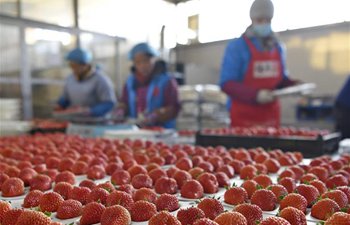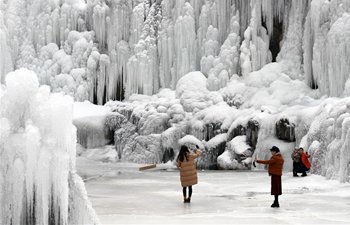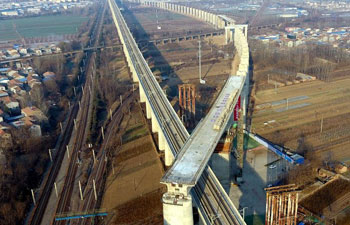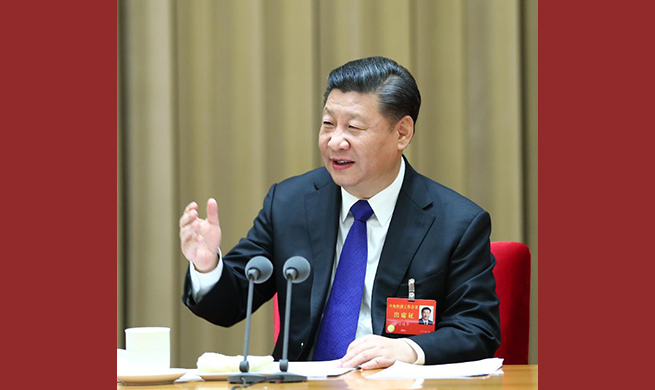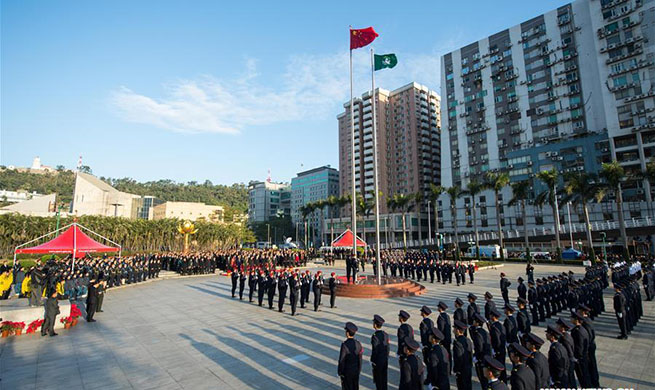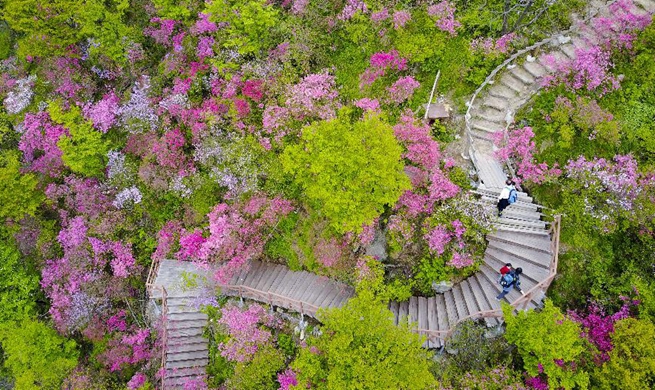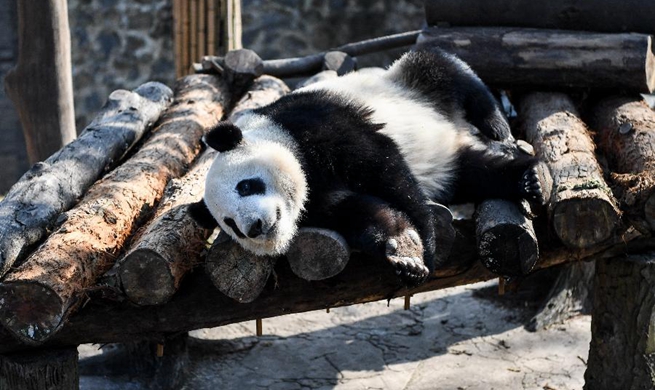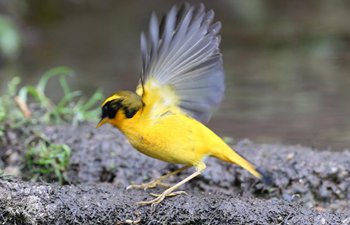by Justice Lee Adoboe
TARKWA, Ghana, Dec. 20 (Xinhua) -- "In the abundance of water, the fool is thirsty", so says a song by legendary musician Bob Marley.
But for Regina Fabile, 29, a native of Bonsaso within the Tarkwa-Nsuaem Municipal Area in the Western Region, 301 km from the national capital, Accra, it is not easy to find fresh drinking water despite in the vicinity of a river.
Living close to River Bonsa, the stream from which her community derived its name, it should have been with very little effort for the mother of one to access fresh water, especially this being a rural area where usually water bodies are spared the vagaries of environmental pollution prevalent in urban and industrial settings.
However, when Xinhua met her coming from the river with a bucket of the dark-brown liquid she had drawn from the river, Fabile said she only used the raw water from the river to wash utensils.
She explained that the nature of the water had over the years deteriorated to the point that even washing with it had become a problem to many.
According to her, young people, including her own brothers who engage in a poorly regulated artisanal mining as well as poorly regulated mining by multinational firms, have led to heavy contamination of the previously fresh water source.
"From my childhood, this has been our source of water for everything we needed water for in the house, whether for cooking, drinking, washing, or bathing. But now we have to get pipe-borne water at a cost for cooking while we buy sachet water to drink because the water in the Bonsa River has been polluted to this level, especially over the past decade," she lamented.
Tarkwa-Nsuaem District is about 85 km north of the oil city of Takoradi, a bustling community in the Western Region noted for its rich mineral resources.
Some of the multinational gold mining firms like Anglogold and Goldfields Ghana have their major mining sites here where lots of commercial activities like retailing, wholesaling, hospitality, communication and many other types of business thrive.
However, potable water is one of the down-sides in especially the rural communities outside the municipal capital, where irresponsible environmental practices by mining firms and illegal mining are killing fresh water bodies.
According to Edgar Clottey, Production Manager at the Bonsaso Treatment Plant of the Ghana Water Company Limited, the main Bonsa River is noted for its high turbidity as a result of illegal mining activities, leading to a higher cost in water treatment for the people.
"The dirtier the water, the more aluminum chloride we apply, which means a higher cost of water treatment," Clottey stated.
And beside the negative effect of the poorly regulated small-scale and large-scale mining along the river, Bonsaso refuse dumps, household toilets and bathrooms are also located along the banks of the river.
Here, waste water flows and seeps freely into the river whenever it rains while adults and children bathe in the dirty water.
In communities such as Teberebe, Dadwen, Kyekyerew, Israel, Mile-5, Nyamebekyere, Domeabra and Mile 10.5, all in the Tarkwa-Nsuaem Municipal Area, a majority of wells which use solar pumping machines have broken down due to poor maintenance.
"We had great relief when the borehole was constructed in 2011 with the solar pump, as water is stored in the overhead tank and the whole community got water from there. But about two years ago, the solar pump broke down and we have persistently appealed to the municipal authorities to assist us in repairing it but to no avail.
"So our women and children have to resort to pumping the water with the hand and that takes so long to fill one bucket," said Richard Mensah, caretaker of the community water system at Israel.
He appealed to the municipal authorities to come to their aid to repair the solar pump for them to alleviate the suffering women and children go through to access water.
The Tarkwa Nsuaem Municipal area is one of the communities where the Ghana Watershed project, which seeks to promote integration between Integrated Water Resource Management and the delivery of Water Sanitation and Hygiene (WASH) under the United Nations Sustainable Development Goals (SDGs), is taking place.
The project seeks to mobilize local government authorities and the communities to develop their own roadmaps towards managing water resources sustainably.
The implementation of the five-year Watershed program is beginning to yield some initial dividends as some of the communities are beginning to understand the need to create designated refuse dumps where they confine the refuse and prevent trash from entering their water bodies.
At Kofikrom, for example, the people have dug a well from which they draw cleaner water than what they draw from the river. They have also dug a pit latrine which is waiting to be roofed for use to halt the menace of open defecation.
The people of Mile 10.5 , Domeabra, Nyamebekyere and Israel have decided to mobilize resources through the tokens community members pay for the water to be used to maintain and/or repair the boreholes.




